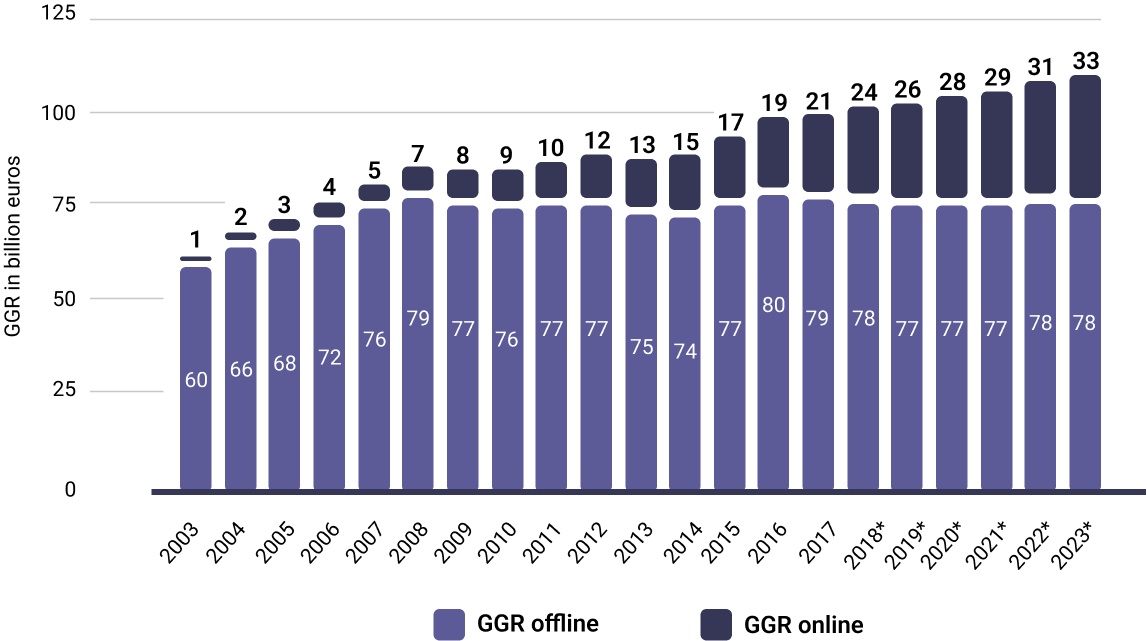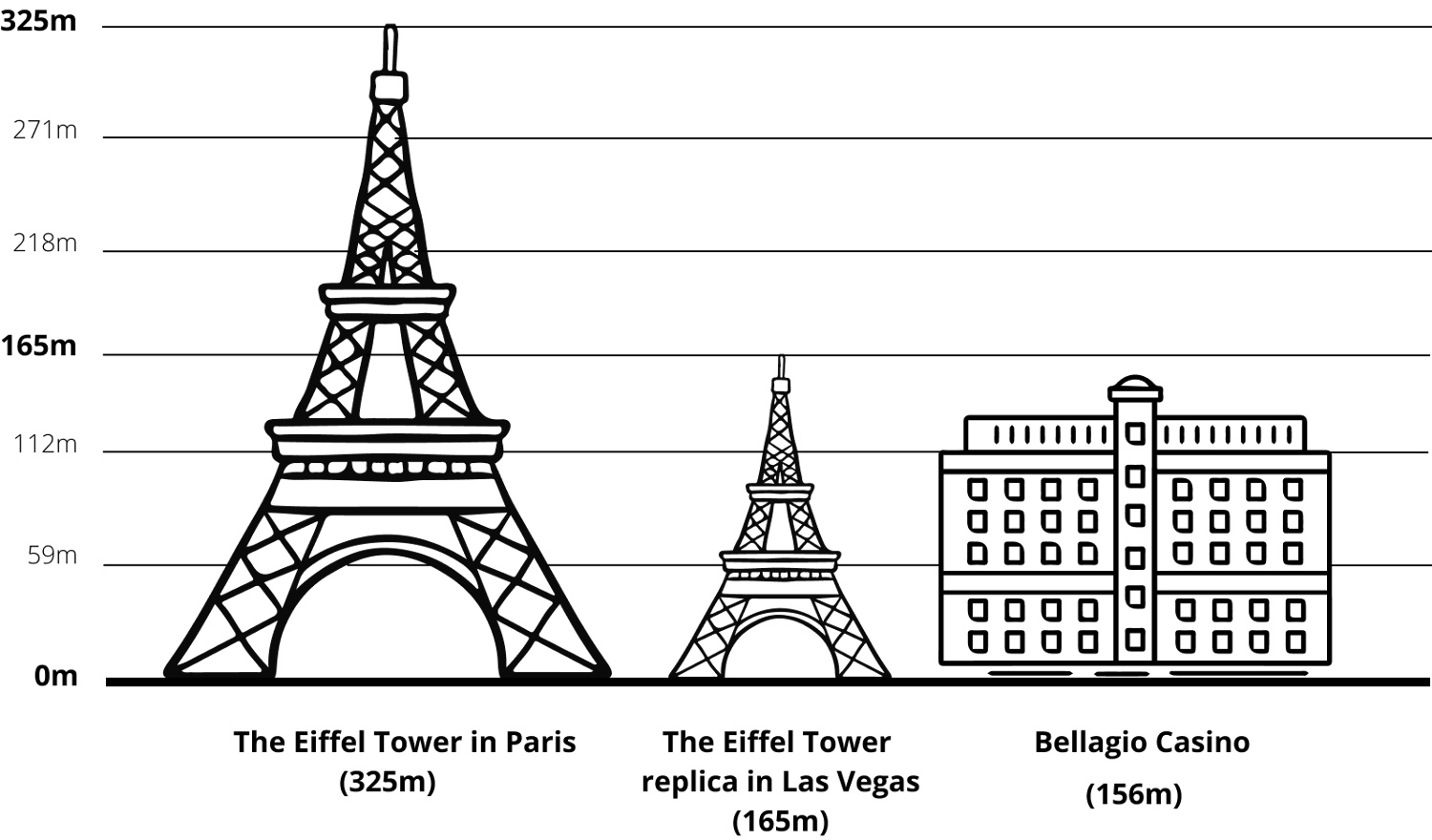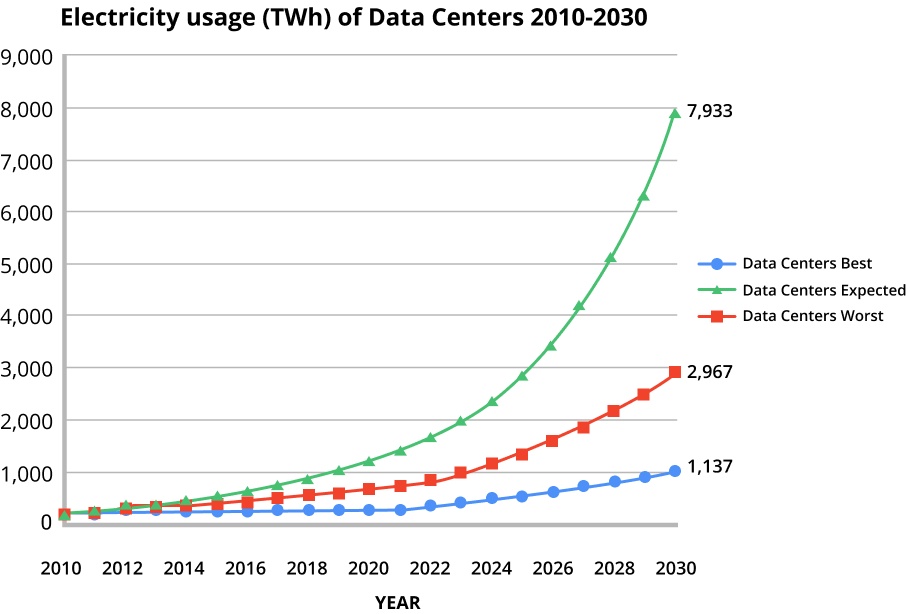If you've been paying attention to the world around you for the last decade, you'll know that the great digital shift is not some big future event anymore. It's already here.
This is particularly true in the world of gambling. Ten years ago, people were more likely to walk into a casino or bookmakers to place a bet, now they probably do it online thanks to the convenience of playing on a mobile device.
Online casinos, sports betting sites and virtual lottery games are all on the up. While we know that these can be more addictive than playing in a physical venue, they do also bring many advantages with them. These include improved game technology and a wider range of games to choose from. They tend to have bigger prizes and, of course, offers like online casino bonuses. It's enough to make traditional venues seem like a distant memory.

Source: https://www.statista.com/statistics/1058386/online-and-offline-gross-gambling-revenue-europe/
Yet with climate change increasingly on the news agenda, including the recent COP26 agreement and freak weather events becoming more common, one area is relatively unexplored: are online betting sites more eco-friendly?
The answer may not be as straightforward as you think...
The problems with land-based casinos
When you think of the word 'casino', you probably get the image of a spinning roulette wheel and players dressed to impress in their finest suits and gowns. This is the image that land-based casinos tried to cultivate over the years: gambling with a hint of luxury.
All that glitz, however, takes a big toll on the environment. Land-based casinos are becoming less popular for several reasons, and their negative characteristics don't help their cause.
Here are a few of them.
They take up a large amount of space
Casinos are big. To take an extreme example, the Bellagio in Las Vegas uses up almost five million square feet – or almost 87 American Football pitches. Even if we take a relatively small example, the Casino Royale in the same city — which stands at 17,500 square feet — is still the same size as a very large mansion.
Note: the Bellagio is also extremely tall: around half the size of the world-famous Eiffel Tower. There's actually a replica of the tower behind the Bellagio fountains, which is around the same height as the casino. So, look at the picture below and imagine putting two Eiffel Tower replicas like this on top of each other, and you just might get an idea how high the actual Eiffel Tower is!

Such large structures take a toll on their local environment. They erode the soil they're built on – if we were to knock them down, the land probably wouldn't be useful anymore. They're also not great to look at in the eyes of many onlookers – the appearance of many casinos is often called an 'eyesore': an unnatural structure that isn't nice to look at.
They affect their surrounding area
It's not just their structure. Casinos also swallow up extra area with parking lots, and even specially built road features such as islands and highway junctions to make access easier.
Often backed by wealthy owners, many can also afford to buy prime locations in city centers, using up land that could have been used for social purposes. It's led to critics linking casinos to the gentrification of central areas, like in the case of Rivers Casino in Philadelphia, where local residents attempted to block its construction in 2008.
What's more, if the local infrastructure isn't ready for a new casino, then we get other environmental hazards – traffic jams. When a new casino opened in Colorado in 1991, local residents were blighted by huge streams of traffic blocking up local routes and causing mayhem.
A casino's effect on its neighbors isn't just confined to physical issues, either. An informative 2016 study by the National Library of Medicine found a causal link between the presence of nearby gambling facilities and rates of problem gambling. To be more specific, the study found that 'adult respondents in a national survey who lived within 10 miles of a casino had twice the rate of problem or pathological gambling as those who lived farther from a casino'.
They attract large crowds of people (and trash)
The pandemic has taken its toll on land-based casino visitors, but even well into the digital age, they were drawing in huge scores of people.
In 2017, for example, 33 million people visited French casinos alone, no doubt attracted by the glamour of French roulette. Even in countries not known for their gambling facilities recorded high numbers – the Netherlands had almost six million gambling visits in the same year.
Crowds of people bring lots of other things. Not so nice things. Trash, noise and possibly even bodily fluids if they've had one drinks too many in the casino.
They have a large carbon footprint
All those people need to get to the casino somehow, as most of us don't have the luxury of having one on our doorstep. Perhaps the most likely way to do that is to drive there, contributing a little more to the casino's carbon footprint each time.
To take the extreme example of Las Vegas again, most of its visitors fly there as it's in the middle of the Nevadan desert, but that's just the start. The millions of people who go there every year aren't there to enjoy it quietly: they want to splash out. This means more entertainment, and more energy to power the entertainment; energy that they wouldn't have consumed had they stayed at home.
Let's not forget the casino's employees, too, who travel there every day to deal us our blackjack cards and serve us snacks and drinks.
Finally, all those games need power – and lots of it. Electricity is central to a casino's operation, from lighting the premises to powering those flashing lights on slots games. A recent report on a Las Vegas casino's power consumption found that the average establishment there generates an electricity bill of over $350,000 per month. Again, this is an extreme example, but it gives us an idea of just how much energy is needed for a land-based casino to function.
And a not-so-fun fact – they kill birds
Casinos may be fun for humans, but not so much for our feathered friends.
The US Fish and Wildlife Service reported that huge buildings with lots of windows are responsible for up to one billion bird deaths a year in the US - and what do many casinos have? Lots of glass.
But why does this happen? Well, birds can't tell the difference between the reflections in the glass and real life, so if they see the sky reflected in the glass, they'll fly toward it...
But it's not all bad
Land-based casinos don't just have negative consequences for the environment; many modern establishments try to contribute positively to their local area.
Part of it is mandatory. Mindful of the negative eco impact of casinos, many countries have introduced strict laws regulating the size of casinos and compelling them to make positive contributions to the community.
Several reports outline these benefits in detail, and include the following:
- Investment in local public transport
- The conservation of historical buildings and cultural heritage
- Regeneration of city landscapes
- Use of alternative power sources, like solar panels
- Construction of local recreation facilities.
There are some great individual examples of these green initiatives, as with the case of Singapore's Marina Bay Sands casino. Its building planners went to great effort to incorporate several eco-friendly features into the casino's design, including a huge glass lobby façade that saves on electricity, a green roof that conserves energy, and a special rainwater fountain.
This 'greener' approach to the environment goes some way toward negating a casino's harmful side effects, but there's still a long way to go before we can consider land-based venues as net contributors to the well-being of their surroundings!
Online casinos are probably less eco-friendly than you think
When we think about internet casinos, it's easy to think of them as modern, eco-friendly alternatives to the energy-guzzling bricks-and-mortar venues. After all, how can a website be bad for the environment? It needs no physical space, and its players don't need to drive or fly there – it's a smooth digital operation that requires a bit of electricity, right?
Well, while online casinos do use much less energy than land-based venues, they are actually big energy consumers, for the following reasons.
Data centers
To run an online casino, the companies behind them rely on server rooms, otherwise known as data centers. Put simply, these are physical facilities that house computing resources for complex internet operations. Amazon, for example, has over 200 of them scattered across the world.
Data centers are known energy guzzlers. They not only require energy to run the equipment, but they also use advanced cooling methods to prevent overheating. Recent data predicts that these centers will contribute 3.2% of global carbon emissions by 2025, and our increasing reliance on digital communications means this number will double every four years.

Source: https://www.researchgate.net/figure/Global-electricity-demand-of-data-centers-2010-2030_fig2_275653947
An online casino may not need a whole data center to itself, but if we add up the several thousands of them, we start to see a significant demand for energy.
Player and employee usage
Online casino games may not take the form of energy-heavy physical terminals, but we still need electricity to play them. Every time a player switches on their computer or mobile device counts as another notch on the energy chart.
Casino employees, too, need power to work. Whether they commute to an office or log on from home, they're often connected for several hours a day – making sure that games are running smoothly, and customers are satisfied. In the extreme case of live casinos, often streamed 24 hours a day in real-time, the management needs to power a studio continuously to stream to its audience, who often tune in from all over the world.
While it's difficult to find concrete statistics about their energy usage, we can assume that the expanding network of online casinos means that overall energy consumption is going up by the year.

Source: https://www.gminsights.com/industry-analysis/online-gambling-market
Gambling websites are not at the level of land-based venues yet, but their energy usage is something that we need to consider as we work toward a more eco-friendly online sphere going forward.
Online casinos don't make as many positive eco contributions as many land casinos do...
Lower energy levels are one thing, but how do online casinos contribute to the global climate challenge?
Many countries have only recently started to recognize online casinos as legal entities, so regulation that requires them to follow eco-friendly policies is way down on the list of priorities. Most internet casinos don't invest in the local infrastructure of the places they are licensed under or use alternative energy sources.
What's more, the major licensing authorities that digital casinos subscribe to – the MGA (Malta Gaming Authority), Curaçao, and GC (Gambling Commission) bodies, for example, have very few 'green' policies for casinos to follow. While this is reasonable, given that they exist to protect player welfare, an absence of a green agenda means most online operators aren't going to upgrade their eco-friendly practices anytime soon.
While some of the taxes that these authorities collect do go towards green causes, there needs to be a clear blueprint from governments and gambling authorities for online operators to follow if they are serious about matching the efforts of land-based venues.
Regulation is the best way to do this, however, in countries with non-existent or outdated legislation, this is a complicated and expensive process to initiate.
...but some online providers are working on it
Despite a general lack of guidance from the powers that be in the online casino world, some companies have taken it upon themselves to give themselves a greener look.
NetEnt, a leading digital gaming supplier, began to release annual sustainability reports in 2017. In them, they set out a 'Green code of conduct', which includes reducing the company's carbon footprint and following the UN's Global Sustainable Development Goals (SDGs). While they haven't published a report since 2019, it does set a good example to the rest of the industry in being more transparent about their practices.
International Gaming Technology (IGT) is another major provider who publishes a sustainability report. Even though most of their sustainable measures relate to non-ecological action, like promoting safe gambling, the company's 2020 report includes a detailed section on 'caring for the environment'. In it, it deals with energy consumption and waste treatment, as well as how it collects the data for them to make informed ecological decisions.
NetEnt and IGT aren't the only two companies that take ecological action in the online gambling sector, but there is plenty of work for the industry to be done if it wants its eco-friendly policies to reflect its exponential growth.
So, which one is greener?
The easy, and probably true, answer is online casinos. They don't belch out emissions like their bricks-and-mortar counterparts, and don't generate traffic or require their customers to fly or drive there.
As society gets more and more digital, there's a common notion that the shift towards online casinos is only good news for the environment — but it's not as simple as that.
Online casinos have energy needs of their own. Their role in the exponential rise in the use of data centers is concerning, and one that regulatory bodies should consider when drafting up new legislation.
To draw a line in the sand and mark themselves as real eco-friendly alternatives, casino sites must look to use the latest technology for their operations. Energy-efficient hardware such as innovative computer processors should always be at the forefront of their thinking and investment plans.
Governments and gaming authorities must also play their part by issuing new green directives that require iGaming sites to limit their energy expenditure.
If the online gambling industry can manage its explosive growth in a responsible way, then we will surely be on the path to a greener gambling future.
